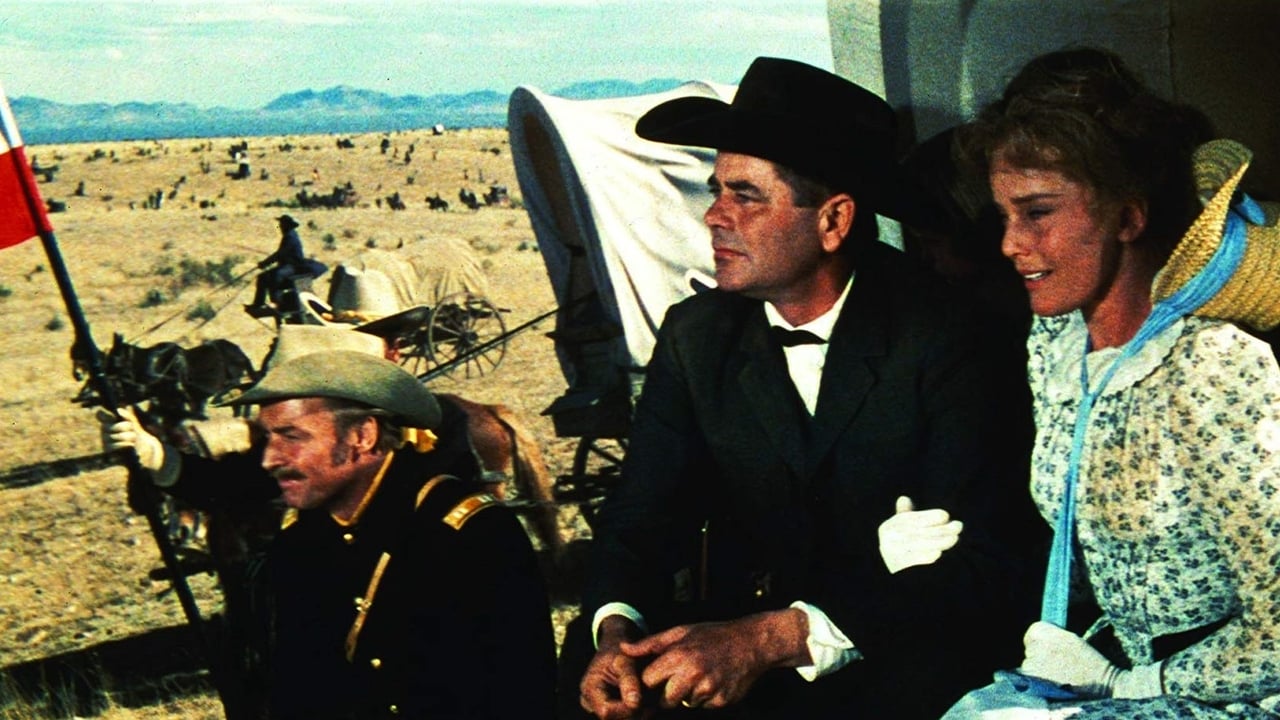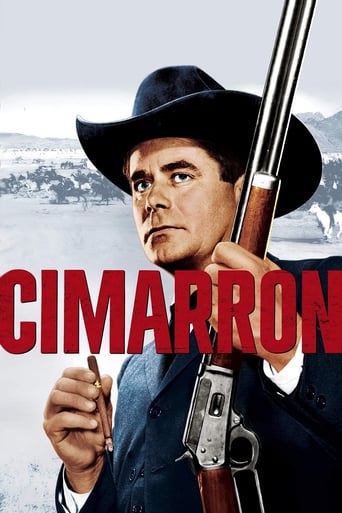

The original movie, made in 1930, won the Best Picture Oscar in 1931, and even though that movie is the lowest-rated Best Picture winner, I thought I watch the 1960 remake as a substitute.Turns out there's a reason why the original has such a low rating...Epic in its historic time span but mostly dull and badly done. Covers 25 years, from the first western settlement of Oklahoma in 1889 until the start of World War 1 in 1914. The historical aspect - the settlement of Oklahoma and its subsequent development - is interesting, but this has a small part in the movie. The main part - the Cravat family - is kind of so-so. The father, played by Glenn Ford, has good intentions but seems incredibly naive. The mother, played by Maria Schell, whines a lot and seems quite bigoted, yet is portrayed as a hero at the end.The whole thing just seems clumsy. Acting is quite hammy. Worst offenders are the guys who played the two gangsters who hid out in the school. Ridiculously over-the-top performances.Best performance comes from Anne Baxter, as Dixie. Convincing, and easy on the eyes...This said, it has its moments, so isn't all bad.
... View MoreAnthony Mann a good Director helms this western a remake of the great Irene Dunne hit Cimarron. The story is well known: The great land Rush opening up the Western United States.Maria Schell so beautiful was given a great promotion by MGM in a film that Elizabeth Taylor would have been perfect. Anne Baxter steals the movie and is wonderful. Great MGM production values.Glenn Ford was a very popular leading man in the mid 50's to early 60's making many fine films. I never was a big Glenn Ford fan and this film should have starred Steve McQueen or perhaps even George Peppard then a young MGM contract player.
... View MoreI haven't seen this all the way thru since 1965; but have seen bits and pieces of it on TCM (thank God for them). Maria Schell is fine as Sabra,and Glenn Ford sporadically shines and then falls flat as an epic hero. I like the other epic qualities, as well as the excellent supporting cast that seems to carry the movie along. I also noticed during the sequence with the train coming in supposedly carrying Yancey from the Spanish American War: the big bell tower in the background is from "Raintree County" (1957). Good music score.
... View MoreThis movie is an almost complete failure. Anthony Mann directed, but his signature style is absent.Here's what I liked:Overall, this is a very big budget production and there are some nice period costumes, sets and props, including some functioning early automobiles.The Oklahoma land rush scene is fantastic. This is really the only reason to watch this movie.Anne Baxter is pretty sexy, but doesn't have much to do. I would like to have seen her role expanded.Is this the only Western that ever had a Jewish character? Only one I can remember. Anyway, some hard hitting Civil Rights stuff, especially the anti-lynching part.I don't know where to start with the negatives:It felt more like a soap opera than a Western.I like Glenn Ford, but this role is just way, way too big for him. Doesn't even begin to pull it off.The lead German girl was awful.There's basically no heavy. A couple of racists who aren't well characterized at all, that's it.All kinds of crazy, inexplicable plot transitions, none worse than when Glenn Ford simply disappears halfway through the movie. What?
... View More